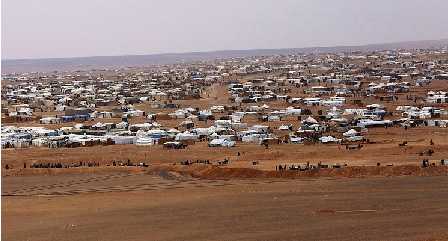
06 June 2023; MEMO: A group of Australian women and children trapped in detention camps in northeast Syria are taking the Australian government to court to try and secure repatriation.
The women argue that their detention is arbitrary, that Canberra has the power to free them and that they have a legal right to return to Australia.
Roughly 38,000 foreign nationals are held in two camps in northeast Syria – Roj and Al-Hawl.
Residents do not have enough food or water and hundreds of children have died from diseases and violence. Children have shrapnel wounds and serious mental health issues.
According to Human Rights Watch (HRW), many of the women and children in these camps were taken to Syria by their family members who wanted to join Daesh and the children are now being collectively punished for their parents' actions.
In 2019 the Australian government repatriated eight children to New South Wales and in October 2022, 13 children and four women were brought home to the same state, on the east coast of Australia.
The legal action, in which Save the Children Australia is acting as a litigation guardian, follows years of repeated requests to repatriate the children, says the Australian Council for International Development, a national association of Australian NGOs.
"We hear a lot from the Australian Government about upholding the rules-based international order on the global stage," said Marc Purcell, ACFID's CEO.
"But until these Australian citizens are given their birth right to citizenship and to come here, it undermines the International Covenant on Civil and Political Rights, and the very international rules and norms it claims to support."
CEO of Save the Children Australia said that the country's unwillingness to bring the children home "is a source of international shame."
Human rights organisations have for years been pressuring countries with nationals in the camp to repatriate them.
In January, France repatriated 15 women and 32 children, the fourth time it had done so in seven months.
The decision followed criticism from a UN committee that said Paris was failing to protect its citizens and is violating the Convention Against Torture.
As the Australian boys grow older, they are at risk of being removed from the camps and placed in adult prisons, away from their mothers where they are even more vulnerable to abuse, including torture and being forcibly disappeared.
Australian teenager Yusuf Zahab was 11 in 2015 when he was trafficked into Syria and died last year in an adult prison despite pleas by his family to the Australian government to repatriate him.




